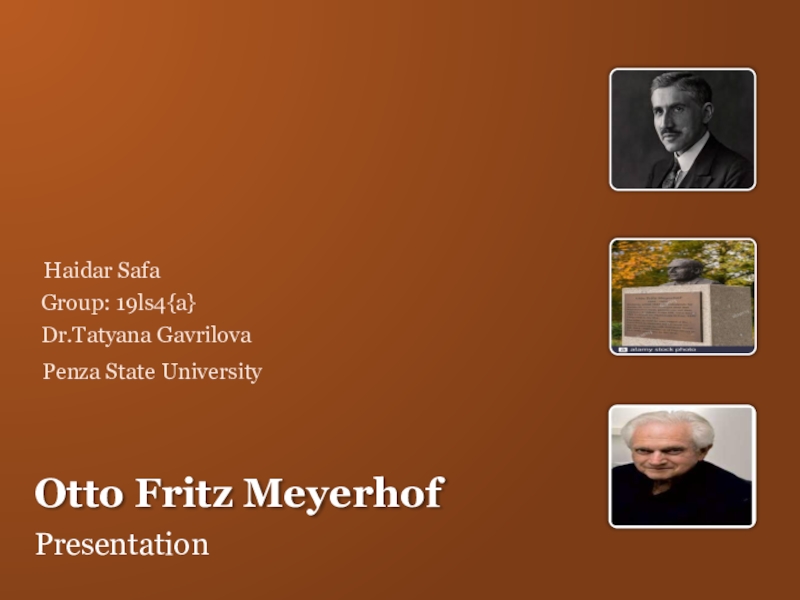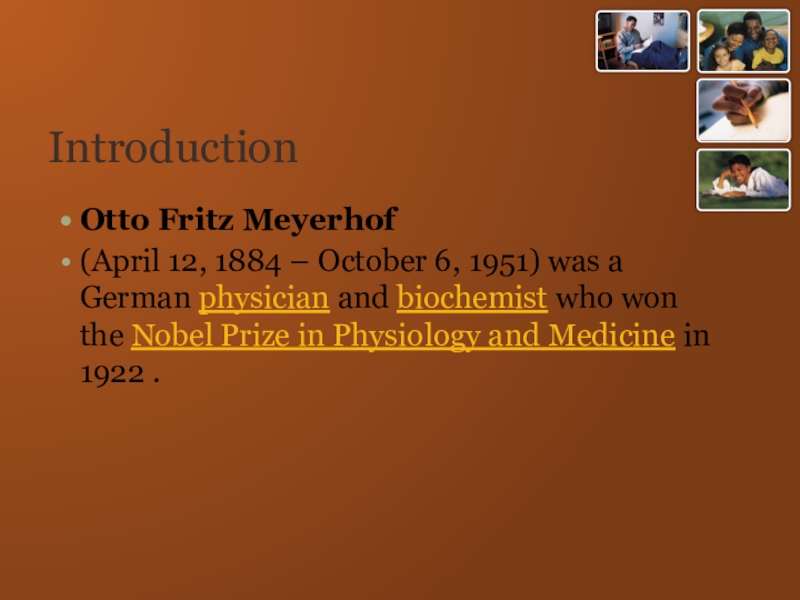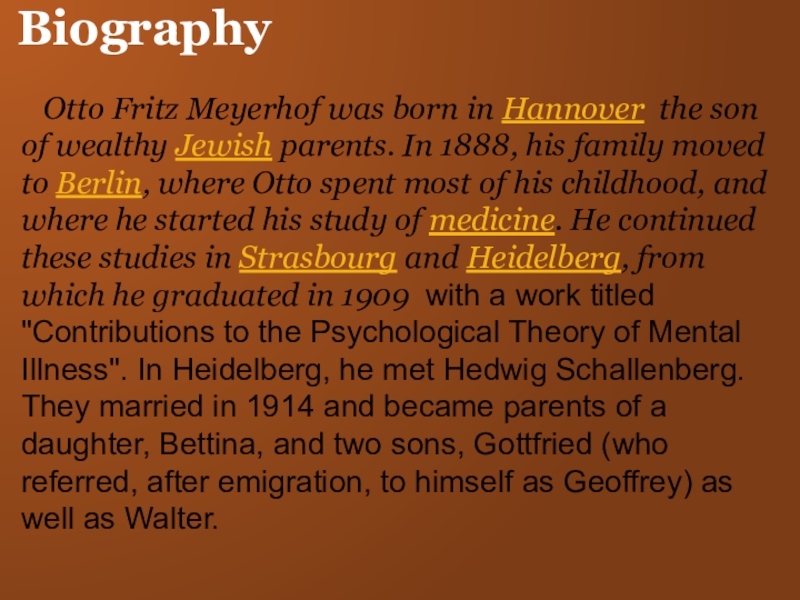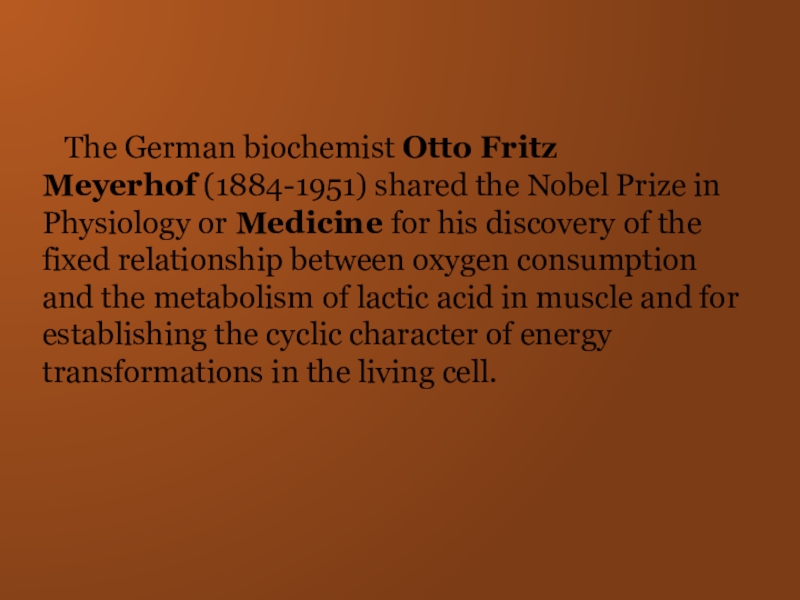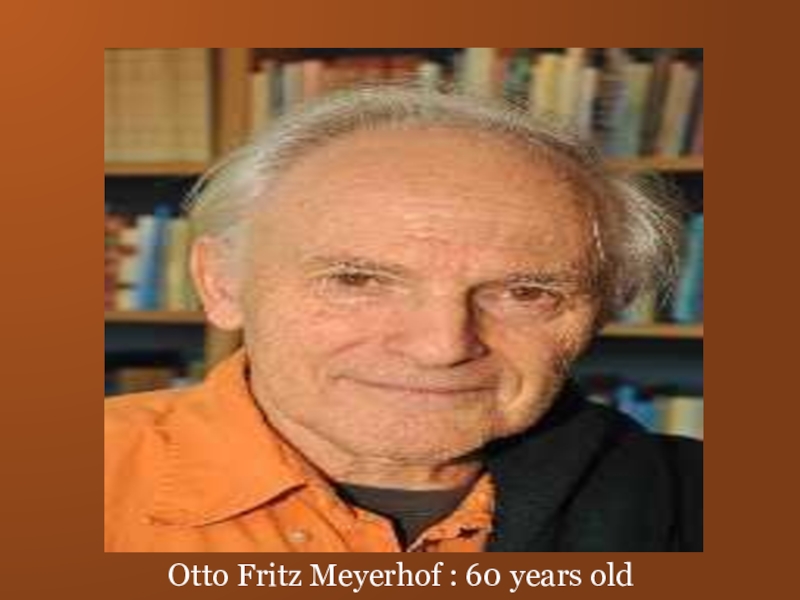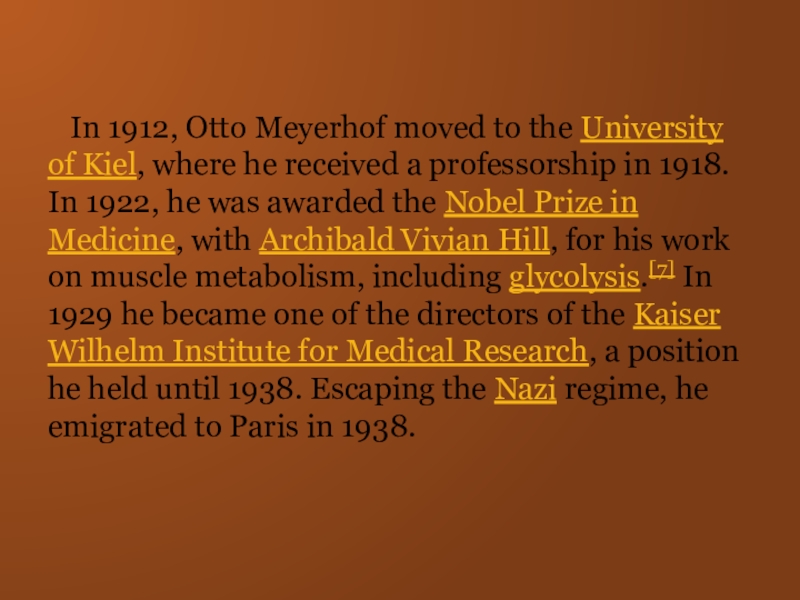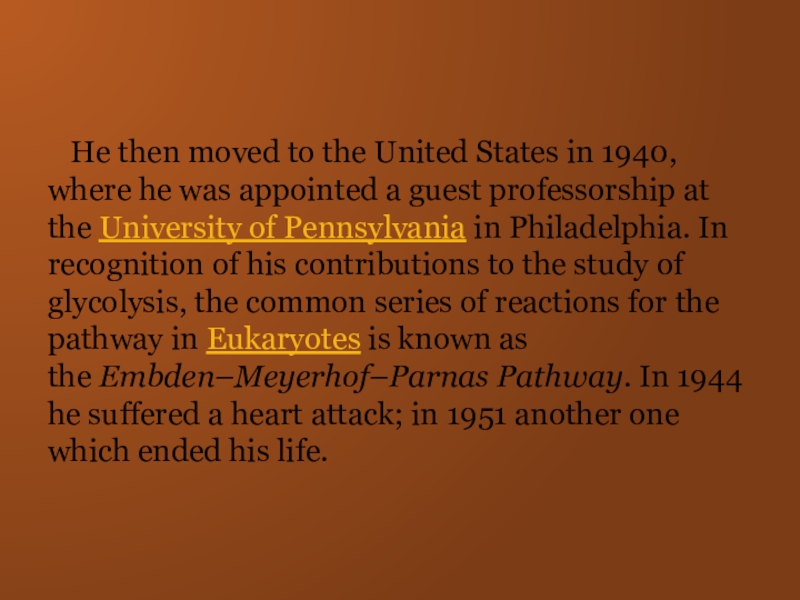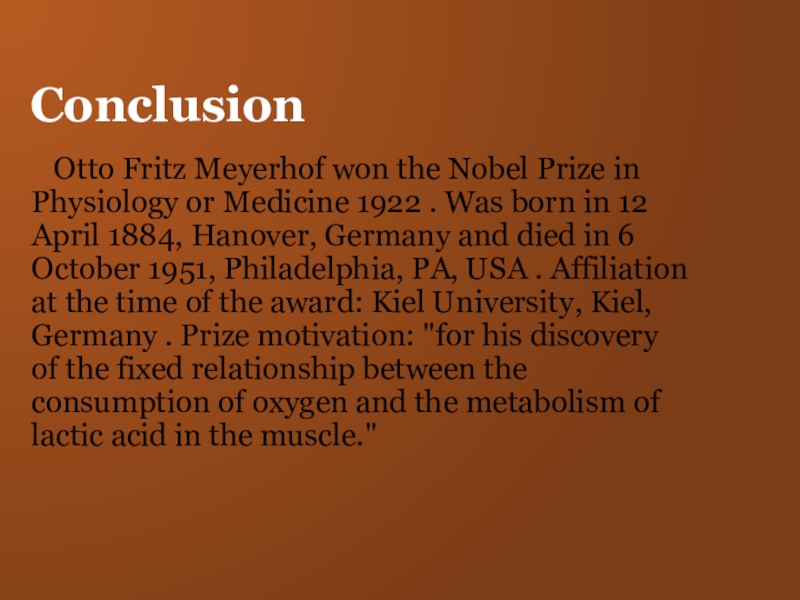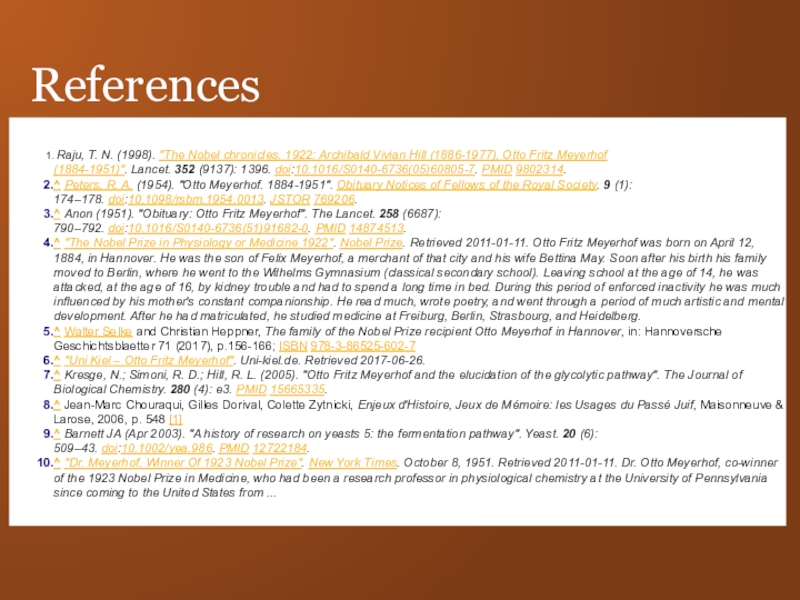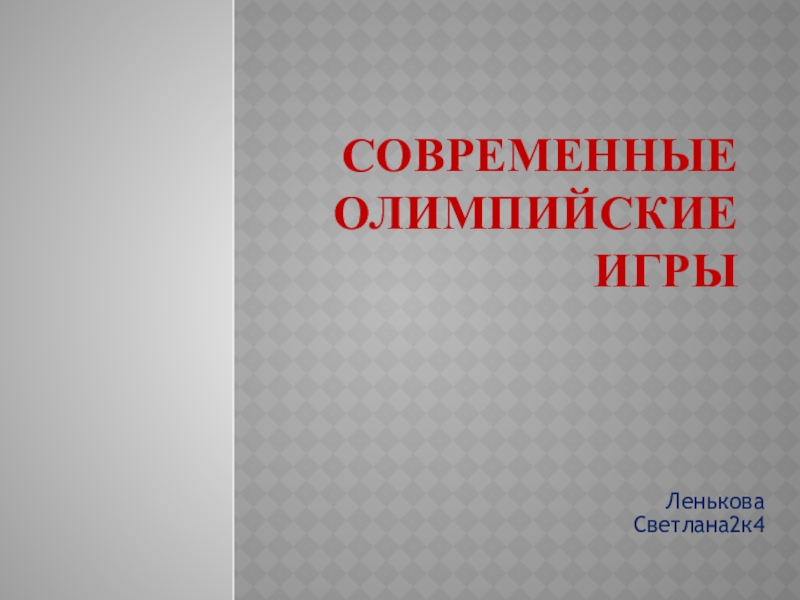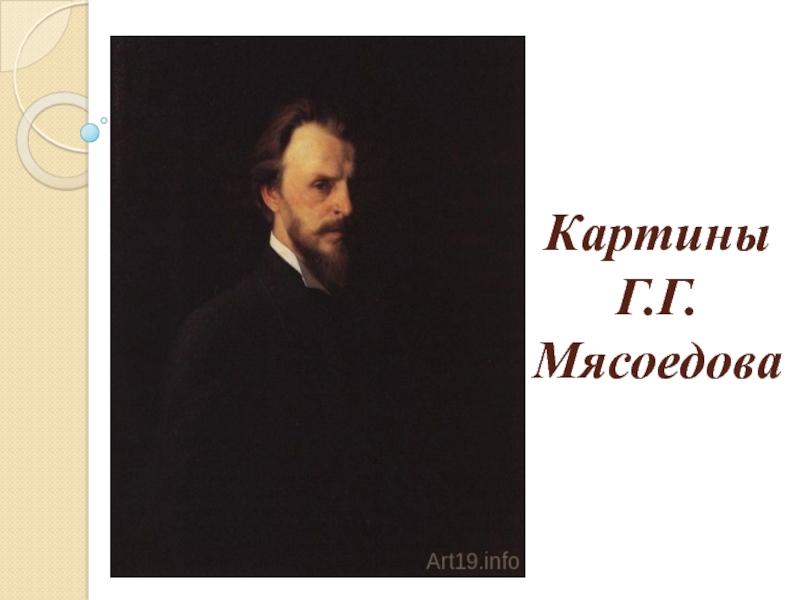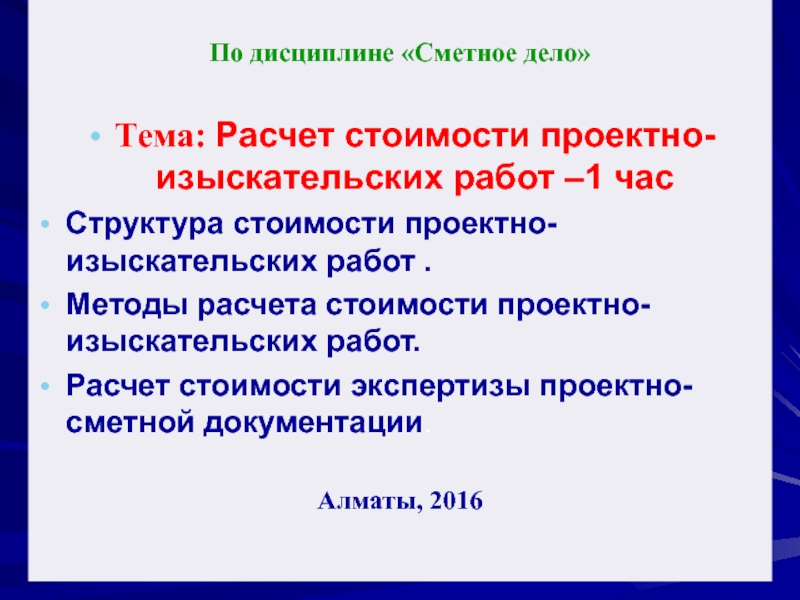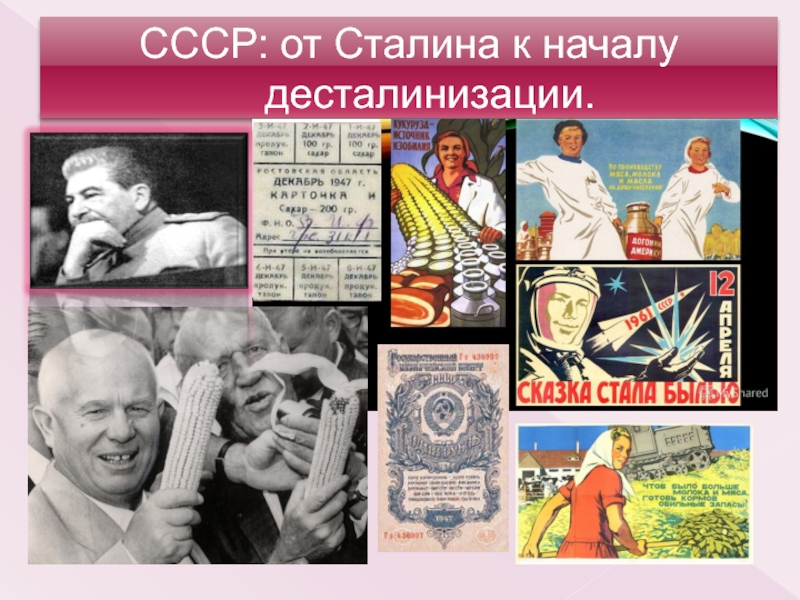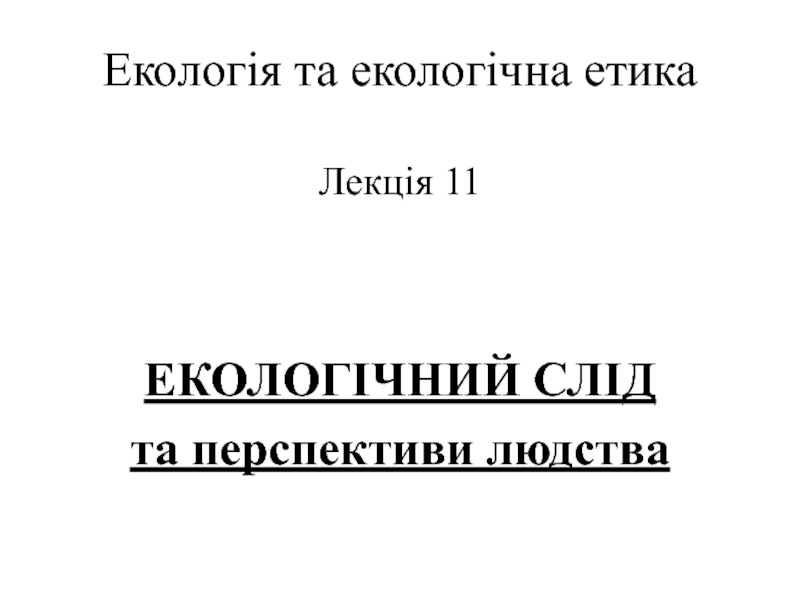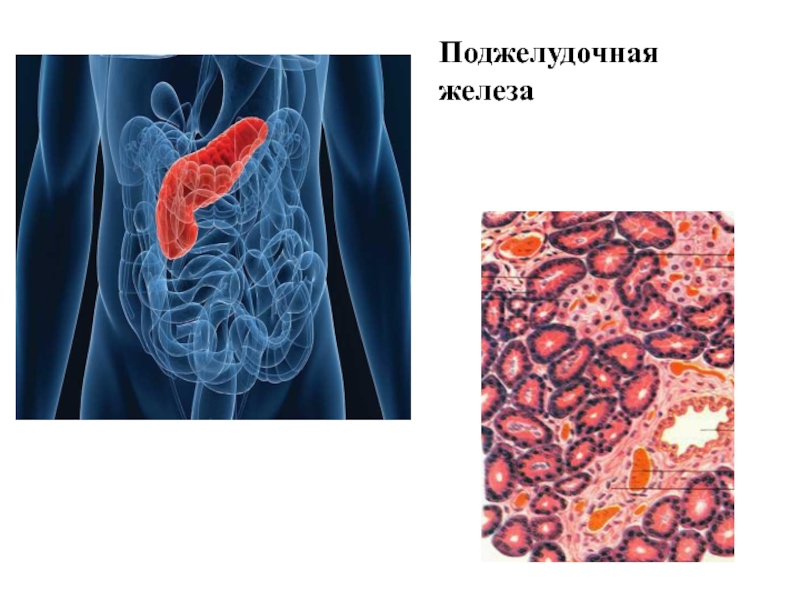Разделы презентаций
- Разное
- Английский язык
- Астрономия
- Алгебра
- Биология
- География
- Геометрия
- Детские презентации
- Информатика
- История
- Литература
- Математика
- Медицина
- Менеджмент
- Музыка
- МХК
- Немецкий язык
- ОБЖ
- Обществознание
- Окружающий мир
- Педагогика
- Русский язык
- Технология
- Физика
- Философия
- Химия
- Шаблоны, картинки для презентаций
- Экология
- Экономика
- Юриспруденция
Otto Fritz Meyerhof
Содержание
- 1. Otto Fritz Meyerhof
- 2. Ministry of education and science of the
- 3. Introduction Otto Fritz Meyerhof (April 12, 1884 –
- 4. Biography Otto Fritz Meyerhof was born
- 5. The German biochemist Otto Fritz Meyerhof (1884-1951)
- 6. Otto Fritz Meyerhof : 60 years old
- 7. In 1912, Otto Meyerhof moved
- 8. He then moved to the
- 9. Conclusion Otto Fritz Meyerhof won the
- 10. References Raju, T. N. (1998). "The Nobel chronicles.
- 11. Скачать презентанцию
Ministry of education and science of the Russian Federation “Penza State University” Medical institute Department of History Course work History of Medicine Topic :Otto Fritz Meyerhof
Слайды и текст этой презентации
Слайд 1Otto Fritz Meyerhof
Presentation
Dr.Tatyana Gavrilova
Penza State University
Group: 19ls4{a}
Haidar Safa
Слайд 2Ministry of education and science of the Russian
Federation
“Penza State University”
Medical
institute Department of History
Done by Student: Haidar Safa Group : 19LC4(a) Controlled by: ass. Of History department The course paper defended with Mark: ……………………………... Teachers : …………………… Defense date : ………………. 2020Слайд 3Introduction
Otto Fritz Meyerhof
(April 12, 1884 – October 6, 1951)
was a German physician and biochemist who won the Nobel Prize in Physiology and Medicine in
1922 .Слайд 4Biography
Otto Fritz Meyerhof was born in Hannover the son
of wealthy Jewish parents. In 1888, his family moved to Berlin, where Otto
spent most of his childhood, and where he started his study of medicine. He continued these studies in Strasbourg and Heidelberg, from which he graduated in 1909 with a work titled "Contributions to the Psychological Theory of Mental Illness". In Heidelberg, he met Hedwig Schallenberg. They married in 1914 and became parents of a daughter, Bettina, and two sons, Gottfried (who referred, after emigration, to himself as Geoffrey) as well as Walter.Слайд 5 The German biochemist Otto Fritz Meyerhof (1884-1951) shared the Nobel
Prize in Physiology or Medicine for his discovery of the fixed relationship
between oxygen consumption and the metabolism of lactic acid in muscle and for establishing the cyclic character of energy transformations in the living cell.Слайд 7 In 1912, Otto Meyerhof moved to the University of
Kiel, where he received a professorship in 1918. In 1922,
he was awarded the Nobel Prize in Medicine, with Archibald Vivian Hill, for his work on muscle metabolism, including glycolysis.[7] In 1929 he became one of the directors of the Kaiser Wilhelm Institute for Medical Research, a position he held until 1938. Escaping the Nazi regime, he emigrated to Paris in 1938.Слайд 8 He then moved to the United States in
1940, where he was appointed a guest professorship at the University
of Pennsylvania in Philadelphia. In recognition of his contributions to the study of glycolysis, the common series of reactions for the pathway in Eukaryotes is known as the Embden–Meyerhof–Parnas Pathway. In 1944 he suffered a heart attack; in 1951 another one which ended his life.Слайд 9Conclusion
Otto Fritz Meyerhof won the Nobel Prize
in Physiology or Medicine 1922 . Was born in 12
April 1884, Hanover, Germany and died in 6 October 1951, Philadelphia, PA, USA . Affiliation at the time of the award: Kiel University, Kiel, Germany . Prize motivation: "for his discovery of the fixed relationship between the consumption of oxygen and the metabolism of lactic acid in the muscle."Слайд 10References
Raju, T. N. (1998). "The Nobel chronicles. 1922: Archibald Vivian Hill
(1886-1977), Otto Fritz Meyerhof (1884-1951)". Lancet. 352 (9137): 1396. doi:10.1016/S0140-6736(05)60805-7. PMID 9802314.
^ Peters, R. A. (1954). "Otto Meyerhof.
1884-1951". Obituary Notices of Fellows of the Royal Society. 9 (1): 174–178. doi:10.1098/rsbm.1954.0013. JSTOR 769206.^ Anon (1951). "Obituary: Otto Fritz Meyerhof". The Lancet. 258 (6687): 790–792. doi:10.1016/S0140-6736(51)91682-0. PMID 14874513.
^ "The Nobel Prize in Physiology or Medicine 1922". Nobel Prize. Retrieved 2011-01-11. Otto Fritz Meyerhof was born on April 12, 1884, in Hannover. He was the son of Felix Meyerhof, a merchant of that city and his wife Bettina May. Soon after his birth his family moved to Berlin, where he went to the Wilhelms Gymnasium (classical secondary school). Leaving school at the age of 14, he was attacked, at the age of 16, by kidney trouble and had to spend a long time in bed. During this period of enforced inactivity he was much influenced by his mother's constant companionship. He read much, wrote poetry, and went through a period of much artistic and mental development. After he had matriculated, he studied medicine at Freiburg, Berlin, Strasbourg, and Heidelberg.
^ Walter Selke and Christian Heppner, The family of the Nobel Prize recipient Otto Meyerhof in Hannover, in: Hannoversche Geschichtsblaetter 71 (2017), p.156-166; ISBN 978-3-86525-602-7
^ "Uni Kiel – Otto Fritz Meyerhof". Uni-kiel.de. Retrieved 2017-06-26.
^ Kresge, N.; Simoni, R. D.; Hill, R. L. (2005). "Otto Fritz Meyerhof and the elucidation of the glycolytic pathway". The Journal of Biological Chemistry. 280 (4): e3. PMID 15665335.
^ Jean-Marc Chouraqui, Gilles Dorival, Colette Zytnicki, Enjeux d'Histoire, Jeux de Mémoire: les Usages du Passé Juif, Maisonneuve & Larose, 2006, p. 548 [1]
^ Barnett JA (Apr 2003). "A history of research on yeasts 5: the fermentation pathway". Yeast. 20 (6): 509–43. doi:10.1002/yea.986. PMID 12722184.
^ "Dr. Meyerhof, Winner Of 1923 Nobel Prize". New York Times. October 8, 1951. Retrieved 2011-01-11. Dr. Otto Meyerhof, co-winner of the 1923 Nobel Prize in Medicine, who had been a research professor in physiological chemistry at the University of Pennsylvania since coming to the United States from ...
